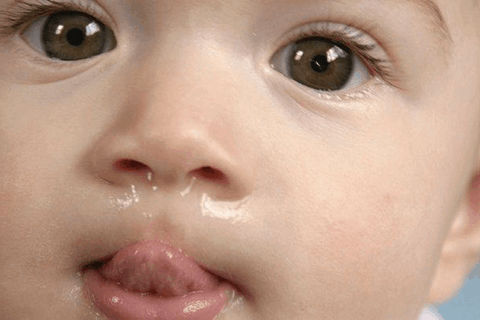ALLERGY SYMPTOMS
Runny Nose

A runny nose can be caused by anything that irritates or inflames the nasal tissues. Infections — such as the common cold and influenza — allergies and various irritants may all cause a runny nose. Excess drainage, ranging from a clear fluid to thick mucus, from the nose and nasal passages. A runny nose may be annoying and uncomfortable, but it usually clears up on its own. Occasionally, it can be a sign of a more serious problem. A runny nose may be serious in infants.
When a cold virus or an allergen such as pollen or dust first enters your body, it irritates the lining of your nose and sinuses (or air-filled pockets around the face) and your nose starts to make a lot of clear mucus. This mucus traps the bacteria, virus or allergens and helps flush them out of your nose and sinuses.
How does your nose work to protect your body?
Your breathing process starts in your nose. Air gets into your lungs through your nose. It helps filter, humidify, warm or cool the air that comes through it so that the air that gets to your lungs is clean.
A special lining of mucosa, or a moist tissue, covers the area inside your nose and consists of many mucus-producing glands. As bacteria, allergens, dust or other harmful particles come into the nose, the mucus traps them. Mucus contains antibodies, or enzymes, which kill unwanted bacteria and viruses.
The mucosa lining also includes cilia, tiny hair-like structures. The cilia are continually in motion and move the collected harmful particles and the mucus that they are trapped in through your nose into the back of your throat. It’s then swallowed and destroyed by the acid in your stomach. Mucus and particles can also be coughed up or sneezed out.
When outdoor temperatures turn cold, the pace of this process slows down. Many times, the mucus stays in your nose and then drips or dribbles out.
Why is mucus an important part of the airway system?
Mucus is needed to keep your airway moist and working properly. Not only does mucus stop harmful particles from getting into your lungs, but it also contains antibodies to help destroy bacteria. If too much mucus is produced, your body wants to get rid of it, leading to coughing and spitting the extra mucus out and blowing it out of your nose.
Why does a runny nose happen? What causes a runny nose?
Your runny nose may have one or more of several causes. Possible causes include:
• Allergies.
• Cold temperatures.
• Common cold.
• Flu.
• Gustatory rhinitis, a form of nonallergic rhinitis that causes a runny nose when you eat certain foods.